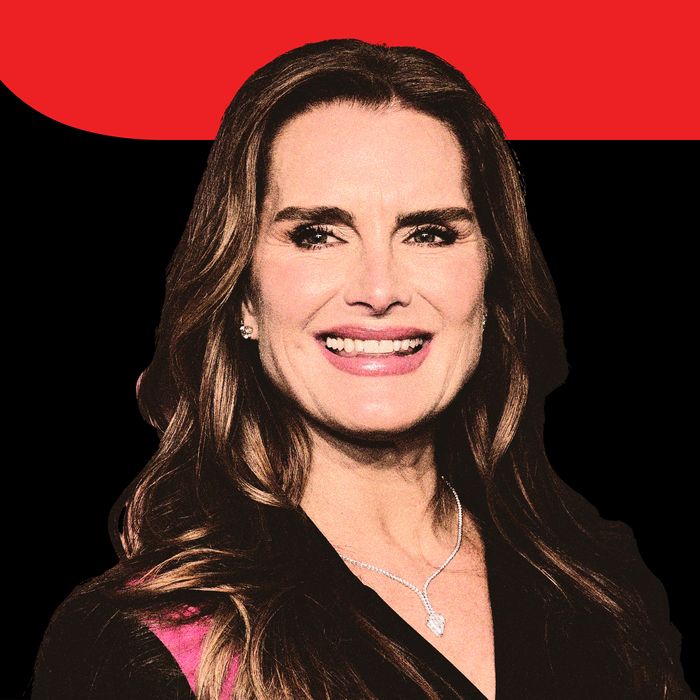
In the latest episode of On With Kara Swisher, Kara speaks with Brooke Shields, whose new documentary, Pretty Baby: Brooke Shields, candidly examines her time as a child model and actress, the hypersexualization she experienced as a young girl starring in the films Pretty Baby and The Blue Lagoon, and the impact that had on her for the rest of her life. In their conversation, Swisher and Shields discuss the films, Shields’s efforts as a kid to keep her alcoholic mother alive, and why she couldn’t speak out about the sexual assault she survived in her 20s perpetrated by a producer at a time in her career when she was both extremely famous and extremely out of work. They also talk about what hasn’t changed in how society views young girls and the new dangers they face coming of age on social media. In the below segment, Kara asks Shields about how she has tried to help her daughters learn from her own experience.

On With Kara Swisher
Subscribe on:
Kara Swisher: So there’s been a lot of change in the industry: Me Too, intimacy coordinators. But our society hasn’t. Like, Hollywood has sort of shifted in terms of trying to protect women, but social media, it continues that idea. It’s hard to imagine that films like Pretty Baby and Blue Lagoon could be made now.
Brooke Shields: Oh, I don’t think they —
Kara Swisher: They’d have 30 year olds playing 13 year olds, right?
Brooke Shields: I don’t think they could. I mean, my daughters sort of talk about that in the film. I mean, you couldn’t make those movies now.
Kara Swisher: Right. But how do you imagine — the society hasn’t changed: Girls are becoming increasingly sexualized. When you look at social media, that hasn’t changed. It feels like that. Do you consider your experience, if you could tell them something about it?
Brooke Shields: It’s so interesting because my younger daughter was very upset about the movie.
Kara Swisher: I can see why.
Brooke Shields: And she was upset about anything bad happening to her mommy. You know? And that, that I understand. I mean, that’s — I get it. What’s terrifying to me is that they think that they have control of it because they dictate their TikToks and their social media and all that. And their argument is “But it’s on my terms, and I’m doing it,” but they don’t seem to understand how it’s feeding the monster.
You know, on the one hand, they’re all so righteous about, you know, “My body, my choice.” Yes. I agree with that wholeheartedly. But they think they’re being feminists, they think that because they’re controlling their image — or they think they are — that somehow they’re impervious to all of what’s really happening and what hasn’t changed. I thought that the effect that the film would have on them was going to be different for my younger girl. I thought she would sort of take this and say, “Oh wow, the world can be scary. I better take care of myself.” And it was a different conversation, and it’s a continuing conversation. I mean, they still say things like, once we had a conversation, that there were certain expectations from them from boys, and that to me was like a thousand steps back.
Kara Swisher: Mm-hmm.
Brooke Shields: You know, “Well, I’m gonna be expected to do this if I do this.” And I’m just thinking: No. No one gets to fucking expect anything from you or your body. And look at me, look at what was expected of me, and I fought through it and shut down and compartmentalized and — but that’s not a way to live either, you know? So it worries me for them. I mean, I’m hoping for the best, but it does worry me that they don’t fully get it.
This interview has been edited for length and clarity.
On With Kara Swisher is produced by Nayeema Raza, Blakeney Schick, Cristian Castro Rossel, and Rafaela Siewert, with mixing by Fernando Arruda, engineering by Christopher Shurtleff, and theme music by Trackademics. New episodes will drop every Monday and Thursday. Follow the show on Apple Podcasts, Spotify, or wherever you get your podcasts.
More From 'on with kara swisher'
- Ron Klain Still Thinks Biden Got a Raw Deal
- Gretchen Whitmer on Why She’s Still Confident in Biden
- AOC on Gaza, Insults, AI, and Whether Trump Will Lock Her Up





























